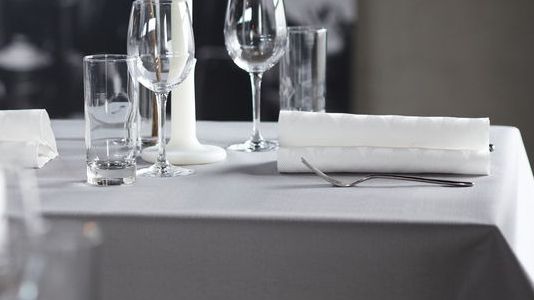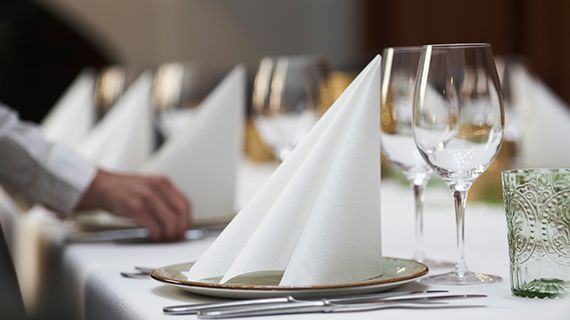
Blog post -
Why Disposable Isn't A Bad Word
The backlash towards single-use tableware, particularly single-use plastics has been growing. Disposable products, such as napkins, table covers and napkin pockets, have often been viewed as environmentally damaging and outdated, but this belittles and negates the true benefits and technological advances, the product range has undergone in recent years, particularly within the hospitality industry.
Newer methods of production such as ‘airlaid’ have drastically improved previous sustainability issues. The raw materials we use to manufacture our paper tableware is typically sourced from FSC®-certified forests and manufactured with air rather than water using shorter wood pulp fibres. As a result, our products maintain their premium quality on par with linen alternatives, offering both high absorbency and improved end-of-life options whilst also providing restaurants and hotels with unlimited flexibility with a wide range of colours and designs.
In addition, paper products often have a smaller environmental impact when the full product lifecycle is considered. A recent study found that paper napkins were more environmentally friendly in higher volumes, and in a restaurant setting than their traditional linen counterparts, from their initial production through to end-of-life. This was primarily due to the high energy cost of laundry.
On top of this, disposable tableware also reduces the risk of cross-contamination for your customer, by offering each guest a fresh germ-free napkin to use. The material for traditional linen napkins and table covers is passed through many ‘hands’ when laundered, usually external to the restaurant so, you cannot control the full product journey.
Bringing the above together, the issue isn’t the fact a product is disposable but, rather the method of disposal. There will still be a requirement for disposable and single-use table solutions in a sustainable future, just not the ones creating waste.
Duni is making a stand against waste, working towards a fully circular-at-scale business model by 2030. One of the steps we’ve already taken is the introduction of our fossil-free BioDunisoft® and BioDunicel® napkin and placemat range. We’ve switched the binder, which is used in Dunisoft® and Dunicel® to give it its unique structure and feel, to renewable, bio-based materials. BioDunisoft® now uses excess food waste from the food industry such as lemon peels and corn, whilst BioDunicel® uses starch from potatoes. This has resulted in 18-30% lower carbon emissions compared to the original materials. Find out more information here: https://uk.dunigroup.com/en/duni/bio

